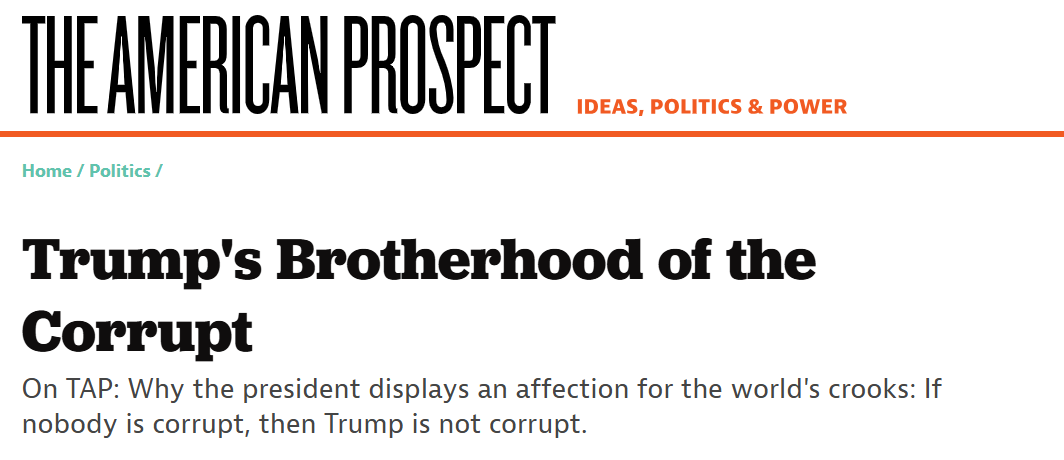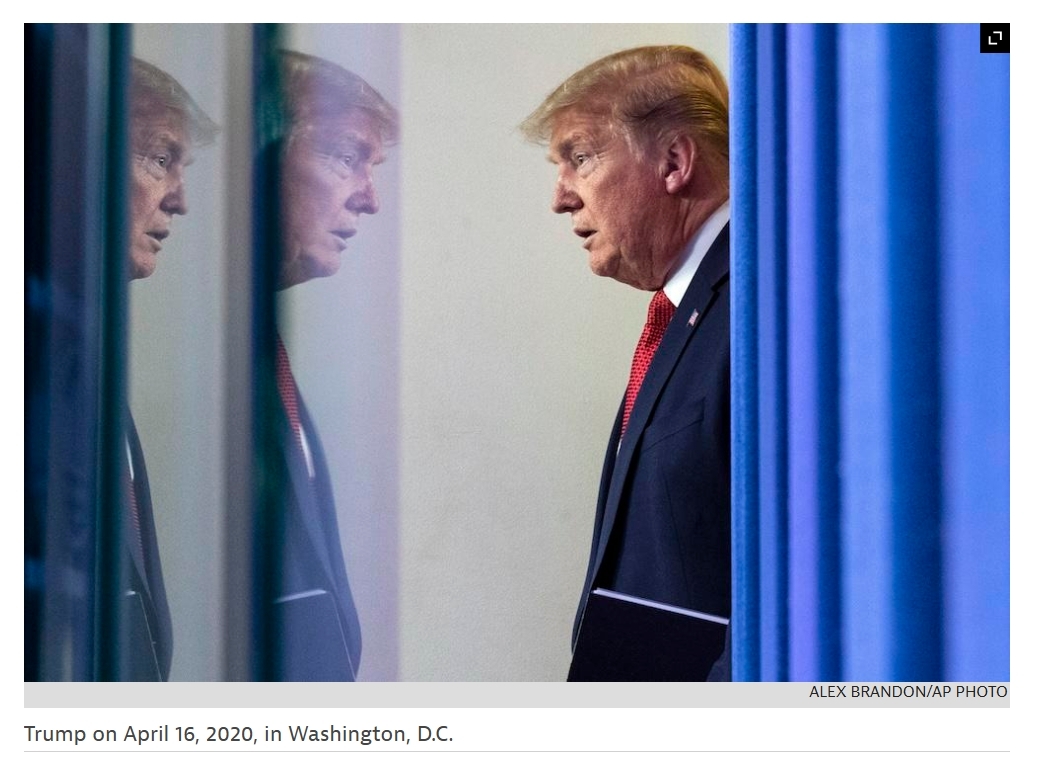Trump's Brotherhood of the Corrupt
 https://prospect.org/politics/2025-06-11-trump-foreign-corrupt-practices-act/
https://prospect.org/politics/2025-06-11-trump-foreign-corrupt-practices-act/

In February, President Donald Trump issued an executive order suspending enforcement of the Foreign Corrupt Practices Act, pending a review. This week,
enforcement was partly reinstated, but drastically narrowed. That brought back some personal memories. As an investigator for Wisconsin's great progressive senator, William Proxmire, in the 1970s, I was responsible for developing two pieces of landmark legislation—the Community Reinvestment Act and the Foreign Corrupt Practices Act. When I pass on to my reward, I'd like to be remembered for co-founding the
Prospect and for my work with Sen. Proxmire on the Senate Banking Committee. It was my graduate school in political economy and the basis for my subsequent career as an economics journalist.
The Foreign Corrupt Practices Act was a response to an epidemic of bribery by U.S. corporations of foreign government officials. It had become almost standard practice for American corporate executives to grease foreign palms in order to get contracts. A particularly notorious case involved Lockheed, which bribed leaders of Japan, West Germany, and other nations to sell aircraft. Lockheed even bribed Japanese Prime Minister Kakuei Tanaka, resulting in his resignation when the bribes were disclosed. Our committee conducted several days of hearings. We concluded that this pattern of corruption debased both honest capitalism and the rule of law. Even though the corrupt bargain involved offshore leaders, it should be illegal under American law.
We got a huge amount of pushback. Corporate lobbyists and their Republican allies argued that these rules would disadvantage American corporations while their foreign competitors could bribe to their hearts' content. Their lawyers also contended that the whole idea was extraterritorial—an unconstitutional attempt to have U.S. law apply abroad. But thanks to the grotesque practices revealed by our investigation and others, as well as Proxmire's deft legislative leadership, the bill passed and was signed into law in 1977. The Supreme Court upheld its constitutionality.
The Act has been a notable success. About 30 enforcement actions are typically filed every year by the SEC and the Justice Department. Contrary to the contention that the Act would disadvantage U.S. corporations, the effect has been the opposite—to level the playing field. Because the act covers all multinational corporations with operations in the U.S., the preponderance of cases, including nine out of the ten largest ones, have been brought against non-U.S. corporations. The largest fine levied against a U.S. corporation was a $2.6 billion fine against...wait for it...Goldman Sachs. The result has been to damp down corporate bribery everywhere—a rare victory for the rule of law against a rising tide of corruption.

snip


